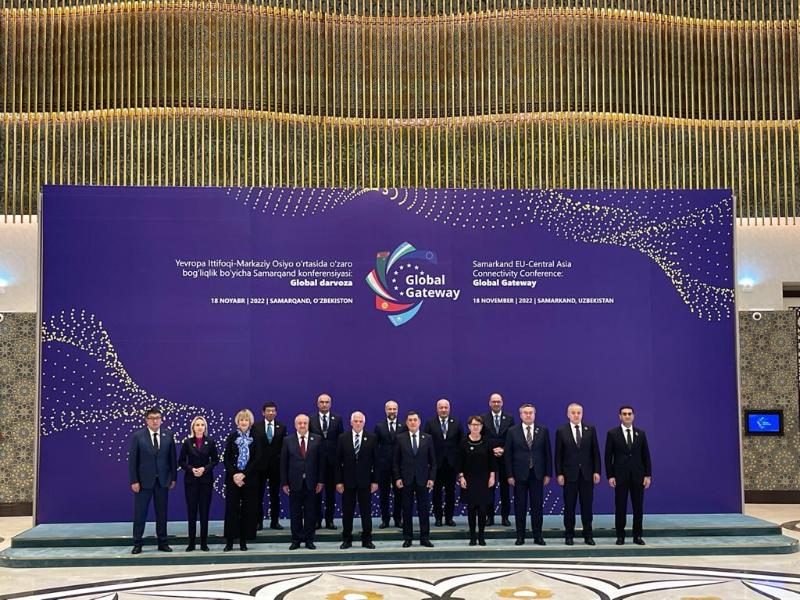
As part of European Union-led efforts to help Central Asia mitigate the socioeconomic impact of the coronavirus pandemic and Russian aggression in Ukraine, the European Investment Bank (EIB) took part in the EU-Central Asia Connectivity Conference in Samarkand, Uzbekistan. EIB Vice-President Teresa Czerwińska opened the conference with a keynote address.
Ms Czerwińska announced Bank’s ambitious plans to step up activities in the region and finance renewable energy, transport and digital connectivity projects, and provide valuable advisory and technical assistance for project preparation.
The conference was organised by the European High Representative for Foreign Affairs and Security Policy/Vice-President of the European Commission Joseph Borrell, and the President of Uzbekistan Shavkat Mirziyoyev.
Speaking at the conference, EIB Vice-President Teresa Czerwińska said: “The European Investment Bank, the bank of the European Union, is ready to do its part and support this vision of cooperation between Europe and Central Asia. The EU Strategy on Central Asia is a good starting point. It offers a format for cooperation on sustainable and climate-considerate development between Central Asia, EU Member States, different donors, and international financial institutions. To facilitate this development, the EIB — as the largest multilateral bank in the world and the largest multilateral financier of climate action — can offer both finance and technical know-how.”
As a sign of its commitment to stepping up activities in Central Asia, the EIB is also planning to open a regional representative office in the region. The EIB regional representation will allow better coordination on projects and technical assistance activities between Team Europe, Central Asian governments and the international development community such as the EIB’s long-standing partners the World Bank and Asian Development Bank.
Key EU initiatives announced at the event
The one-day conference brought together leaders of the five Central Asian countries — Kazakhstan, Kyrgyzstan, Tajikistan, Turkmenistan and Uzbekistan — the European Union and Team Europe (including the EIB) to discuss ways to boost investment, digitalise the economy, facilitate trade within and beyond the region, and diversify transport routes. Priority will be given to transport, energy and digital connectivity projects in the region.
The European Union and the EIB have been actively supporting Central Asia’s transition towards sustainable, climate-neutral and inclusive growth based on democracy and the rule of law. Given the common history and challenges faced by the region’s economies as well as their developing links, closely co-ordinated regional responses will bring additional value.

©EIB
Download original

©EIB
Download original

©EIB
Download original